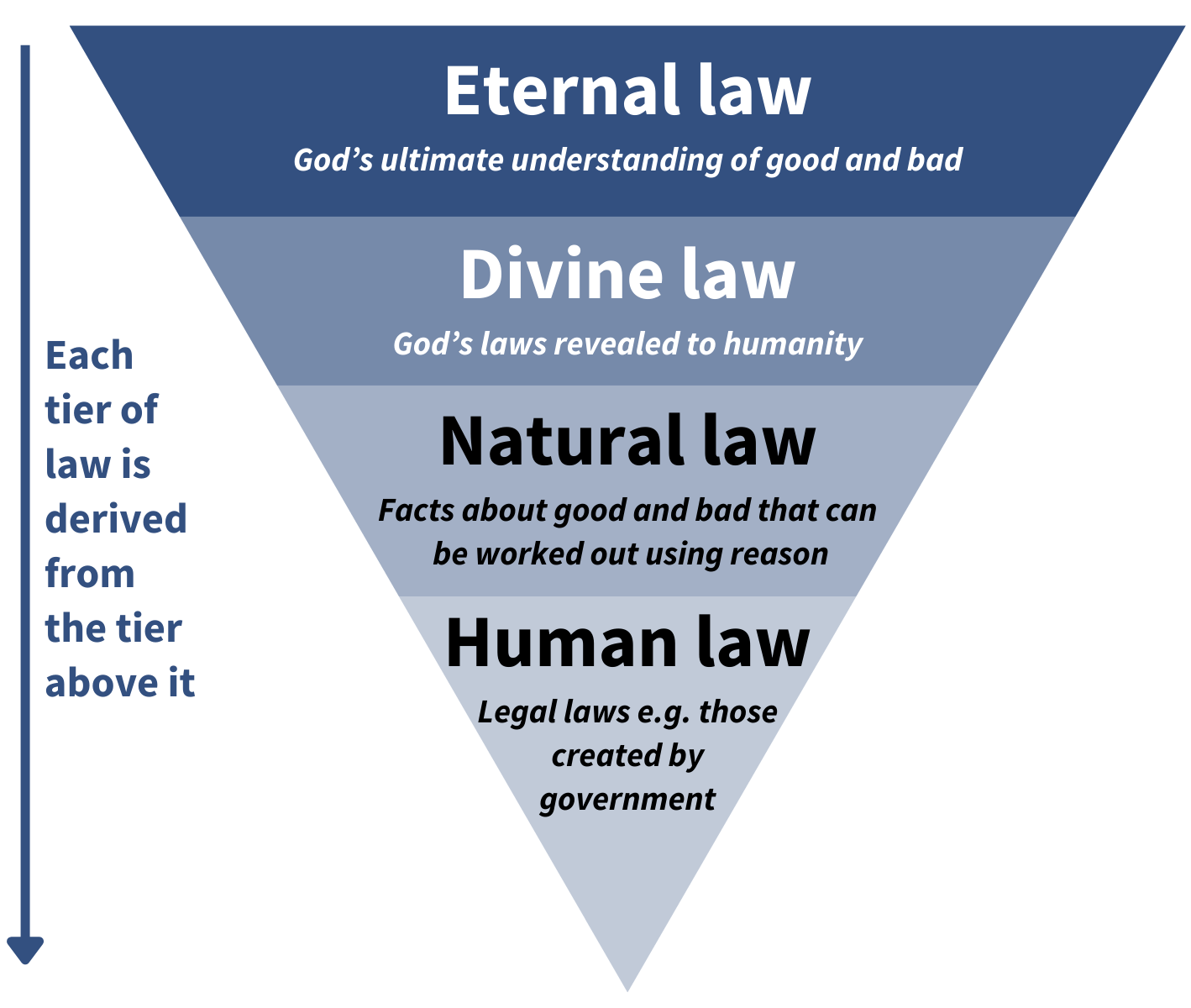<<< Back to philosopher profiles
St. Thomas Aquinas
- Born: c. 1225 (Roccasecca, Italy)
- Died: March 7, 1274 (Fossanova Abbey, Italy)
 Biography
Biography
Thomas Aquinas was likely born around 1225 in the family castle at Roccasecca, near Aquino, in what was then the Kingdom of Sicily (now Lazio, Italy). He came from a rich and influential family.
His family intended for him to become abbot of the Benedictine monastery at Monte Cassino, a prestigious role suited to his aristocratic status. However, Thomas defied their expectations by joining the Dominican Order, a group dedicated to preaching, scholarship, and poverty. Opposing this decision, his family kidnapped and imprisoned him to try and persuade him to join he abbacy. However, after nearly two years of imprisonment, he escaped and formally joined the Dominicans in 1244, allowing him to pursue his theological vocation.
Aquinas studied under Albertus Magnus at the University of Paris and Cologne, gaining a reputation for his intellectual depth. His most famous work, Summa Theologica, sought to systematically reconcile faith and reason, drawing heavily on Aristotelian philosophy. His rigorous approach earned him the title Doctor Angelicus (Angelic Doctor). He died in 1274 while travelling to the Second Council of Lyons.
Aquinas’ ideas have had a lasting impact on the Catholic Church and Christian theology, giving rise to an entire school of thought known as Thomism. His natural theology has shaped Christian apologetics and influenced debates on faith and reason for centuries. But Aquinas’ influence extends beyond Christianity to Western philosophy as a whole, providing a foundation for discussions in metaphysics, the nature of God, moral reasoning, and beyond.
Key Ideas
Aquinas argued that faith and reason are complementary, with reason exploring the natural world and aspects of God, and faith revealing divine truths that are beyond reason, such as the Trinity.
The Five Ways
Aquinas formulated five arguments for the existence of God in the Summa Theologica, known as the “Five Ways”. These five ways demonstrate God’s existence using observations of the natural world:
- The Argument from Motion: Everything in motion is moved by something else. This chain of motion must lead to an unmoved mover—God.
- The Argument from Causation: Every effect has a cause, and there must be a first uncaused cause—God.
- The Argument from Contingency: Contingent beings (which can fail to exist) require a necessary being that exists by its own nature—God.
- The Argument from Degrees: The existence of varying degrees of perfection implies a standard of ultimate perfection—God.
- The Argument from Design: The order and purpose in nature suggest an intelligent designer—God.
These arguments remain foundational in natural theology, even as they continue to be discussed and critiqued.
Natural Law Ethics
Thomas Aquinas’ natural law ethics builds on Aristotle’s idea that everything has an inherent purpose (telos). For both, the telos of human beings is eudaimonia—flourishing—but Aquinas sees this as ultimately found in union with God. Since humans are uniquely rational, they achieve their telos by using reason to align their actions with the moral order inherent in nature.
Aquinas identified universal moral principles, known as the primary precepts, which reflect natural human inclinations: preserving life, reproducing and educating offspring, living in society, seeking knowledge, and worshipping God. From these, secondary precepts—such as laws against theft or for education—can be derived, though their application may vary with context. While the primary precepts are absolute, Aquinas recognised that reason plays a role in adapting moral rules to particular situations.

By following natural law, humans act in accordance with their purpose and fulfil God’s divine order. This ethical framework links moral behaviour to virtue, particularly prudence, which helps apply reason to moral decisions. Aquinas’ natural law theory remains central to Catholic moral teaching and continues to shape ethical thought.

The Doctrine of Analogy
Aquinas grappled with the question of how humans can speak meaningfully about God, who is infinite and beyond human comprehension. He proposed the Doctrine of Analogy, arguing that terms like “good” or “wise” can be applied to both God and humans, not in exactly the same way (univocally) or entirely differently (equivocally), but analogously. For example, God’s goodness is not the same as human goodness, but our understanding of goodness points to a higher, perfect form in God.

Quotes
“The existence of God can be proved in five ways.”
– Summa Theologica (Part 1, Question 2)
“Therefore, everything that does not imply a contradiction in terms, is numbered amongst those possible things, in respect of which God is called omnipotent: whereas whatever implies contradiction does not come within the scope of divine omnipotence.”
– Summa Theologica (Part 1, Question 25)
“Therefore it is necessary to arrive at a first mover, put in motion by no other; and this everyone understands to be God.”
– Summa Theologica (Part 1, Question 2)
“If our opponent believes nothing of divine revelation, there is no longer any means of proving the articles of faith by reasoning, but only of answering his objections – if he has any – against faith. Since faith rests upon infallible truth, and since the contrary of a truth can never be demonstrated, it is clear that the arguments brought against faith cannot be demonstrations, but are difficulties that can be answered.”
– Summa Theologica (Part 1, Question 1)
“Now the object of the will, i.e. of man’s appetite, is the universal good; just as the object of the intellect is the universal true. Hence it is evident that naught can lull man’s will, save the universal good. This is to be found, not in any creature, but in God alone.”
– Summa Theologica (Part 2 (First Part), Question 1)
Influences and Influenced
Influences: Aquinas’ metaphysics, ethics, and natural philosophy were all heavily influenced by Aristotle, who he referred to as “the philosopher” in his writings. For example, Aquinas used Aristotle’s concepts, like the four causes, to explain theological ideas, extending ancient Greek philosophy into the realm of Christianity and faith. Aquinas was also heavily influenced by Augustine’s integration of Christian theology with Neoplatonism, particularly regarding the nature of God and the soul. He also drew inspiration from Islamic and Jewish Thinkers such as Avicenna, Averroes, and Maimonides.
Influenced: Aquinas’s integration of faith and reason became a cornerstone of Catholic orthodoxy, especially after his canonisation in 1323. His works remain central in seminaries and theological studies. In philosophy more generally, Aquinas’ natural law theory has influenced thinkers like John Locke and remains significant in debates on human rights and morality. Aquinas’ ideas on metaphysics, ethics, and theology continue to inspire modern philosophers and theologians, such as Alasdair MacIntyre.
Key Works and Further Reading
- Summa Theologica
- Summa Contra Gentiles
- On Being and Essence (De Ente et Essentia)
- Commentary on Aristotle’s Nicomachean Ethics
- On the Principles of Nature